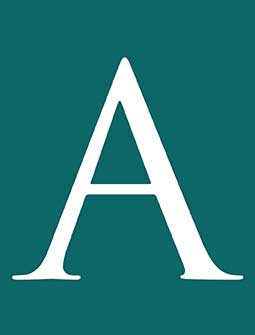
The IRS issued proposed regulations (REG-119307-19) implementing changes to Sec. 274 that disallow a deduction for the expense of any Sec. 132(f) qualified transportation fringe (QTF) provided to an employee, effective for amounts paid or incurred after Dec. 31, 2017. The changes were enacted in the law known as the Tax Cuts and Jobs Act (TCJA), P.L. 115-97. The proposed regulations provide guidance to determine what QTF expenses are nondeductible and how to apply certain exceptions under Sec. 274(e) that may allow QTF expenses to be deductible.
Parking
In Notice 2018-99, the IRS provided interim rules regarding how to determine the amount of parking expenses that is nondeductible or treated as unrelated business taxable income (UBTI). (With the repeal of Sec. 512(a)(7), the UBTI rules are no longer relevant.) The notice addressed situations in which the employer pays a third party to provide parking for its employees and where the employer owns or leases a parking facility for employees to park in and provided a four-step method for calculating the nondeductible portion of parking expenses.
The IRS says it received approximately 500 comments on the notice.
Under the proposed regulations, as in Notice 2018-99, if the taxpayer pays a third party for its employee’s QTF, the Sec. 274(a)(4) disallowance is generally calculated as the taxpayer’s total annual cost of the QTF paid to the third party. With regard to QTF parking expenses, the proposed regulations provide that if the taxpayer owns or leases all or a portion of one or more parking facilities, the Sec. 274(a)(4) disallowance may be calculated using a general rule or any one of three simplified methods.
The general rule allows taxpayers to calculate the disallowance based on a reasonable interpretation of Sec. 274(a)(4); however, taxpayers must use the expenses paid or incurred in providing the QTF instead of its value to an employee, must allocate parking expenses to reserved employee spaces, and must properly apply an exception for parking made available to the general public.
The proposed regulations also include a special rule for certain mixed parking expenses to reduce administrative burdens for taxpayers and simplify calculations.
While Notice 2018-99 addressed only expenses related to parking QTFs, the proposed regulations include rules addressing the disallowance of deductions for expenses for transportation in a commuter highway vehicle and transit pass QTFs.
Transportation and commuting expenses
New Prop. Regs. Sec. 1.274-14 addresses transportation and commuting expenses paid or incurred by an employer. Sec. 274(l), added by the TCJA, disallows deductions for any expense incurred to provide transportation, or any payment or reimbursement for transportation, to an employee of the taxpayer in connection with travel between the employee’s residence and place of employment, except as necessary for ensuring the safety of the employee. The proposed regulations define “residence” and “safety of the employee” for these purposes.
Exceptions
Under Sec. 274(e) there are three exceptions to Sec. 274(a) that are relevant to QTFs. Sec. 274(e)(2) provides an exception for “expenses for goods, services, and facilities, to the extent that the expenses are treated by the taxpayer, with respect to the recipient of the entertainment, amusement, or recreation, as compensation” to the employees and as wages by the employees. The IRS has determined that this exception applies to QTF expenses to the extent that the fair market value of the QTF exceeds the Sec. 132(f)(2) limitation on exclusion and the excess amount is treated by the employer as compensation to the employee and by the employee as wages.
The IRS says the Sec. 274(e)(7) exception for expenses for goods, services, and facilities made available by the taxpayer to the general public and the Sec. 274(e)(8) exception for expenses for goods or services (including the use of facilities) that are sold by the taxpayer in a bona fide transaction for adequate and full consideration also apply to QTF expenses.
However, the IRS has determined that the Sec. 274(e) exceptions apply only to amounts that would be disallowed under Sec. 274(a) and not to those disallowed under Sec. 274(l).
Exempt organizations
The TCJA also added Sec. 512(a)(7), which provides that a tax-exempt organization’s unrelated business taxable income (UBTI) is increased by the amount of the QTF expense for which a deduction is not allowable under Sec. 274, effective for amounts paid or incurred after Dec. 31, 2017. Sec. 512(a)(7) was repealed on Dec. 20, 2019, retroactive to the original date of enactment of the TCJA, by the Taxpayer Certainty and Disaster Tax Relief Act of 2019, enacted as part of the Further Consolidated Appropriations Act, 2020, P.L. 116-94.
Even though Sec. 512(a)(7) was retroactively repealed, the IRS says Sec. 274 and the proposed regulations still apply to a tax-exempt organization to the extent the amount of the QTF expenses paid or incurred by an exempt organization is directly connected with an unrelated trade or business conducted by the exempt organization. In that case, the amount of the QTF expenses directly connected with the unrelated trade or business is subject to the disallowance under Sec. 274(a)(4) and, thus, is disallowed as a deduction in calculating the UBTI attributable to that unrelated trade or business under Sec. 512(a)(1). The examples set forth in Prop. Regs. Sec. 1.274-13 involve taxable entities, but tax-exempt organizations with unrelated trades or businesses may use the examples to determine the amount of the Sec. 274(a)(4) disallowance in calculating their Sec. 512(a)(1) UBTI.
— Sally P. Schreiber, J.D., (Sally.Schreiber@aicpa-cima.com) is a Tax Adviser senior editor.
Leave a Reply